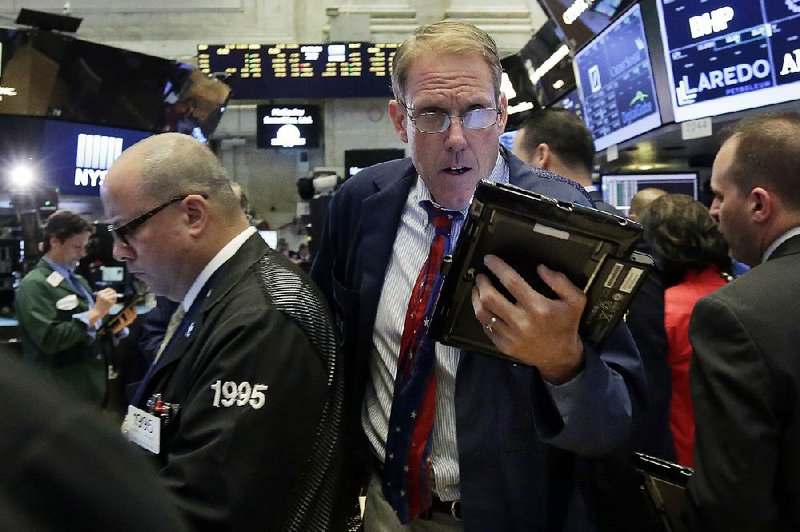NEW YORK -- U.S. stocks hardly budged Monday as smaller firms and retailers rose while health care companies and banks declined. Shares of chemical and mining companies rose as the dollar weakened.
The Standard & Poor's 500 index fell 0.13 of a point to 2,459.14. The Dow Jones industrial average shed 8.02 points to 21,629.72. The Nasdaq composite gained 1.97 points to 6,314.43. The Russell 2000 index of smaller-company stocks rose 2.79 points, or 0.2 percent, to 1,431.60.
The S&P 500, Dow and Russell 2000 all closed at record highs Friday. The Nasdaq has rallied almost 4 percent in the last seven days, and it's recovered almost all of its losses from technology companies' slump in early June.
Precious metals rose as the dollar, already at its lowest levels in almost a year, weakened a bit further. Bond yields slipped, sending banks lower and high-dividend stocks like utilities and household goods companies higher.
Investors expect another solid round of corporate earnings, and they think the Federal Reserve will be more cautious about raising interest rates because of some weak economic data, including Friday's report on retail sales.
"The fundamental picture for investors seems to be sort of strangely perfect, with improving fundamentals and a central bank with its foot that was only weakly on the gas coming off the gas," said Katie Nixon, chief investment officer for Wealth Management at Northern Trust.
The dollar has been declining this year as investors have concluded the federal government isn't close to any kind of infrastructure spending package, which would strengthen the U.S. economy. Meanwhile economies in Europe are doing better and interest rates there are rising, which makes European currencies stronger.
Gold rose $6.20 to $1,233.70 an ounce. Silver gained 17 cents, or 1 percent, to $16.10 an ounce. Copper rose 3 cents, or 1.2 percent, to $2.72 a pound.
Investment firm BlackRock dipped after it reported weaker-than-expected results in the second quarter. The company's earnings and revenue fell short of Wall Street forecasts, and its stock declined $13.71, or 3.1 percent, to $425.63.
After the end of regular trading, Netflix said it picked up 5.2 million subscribers in the second quarter. That was its biggest gain ever in what's usually a slow period, and the streaming video company's stock jumped 11 percent aftermarket.
Financial giant Goldman Sachs, health care products maker Johnson & Johnson and health insurer UnitedHealth are scheduled report their second-quarter results early today.
Bond prices rose. The yield on the 10-year Treasury note fell to 2.31 percent from 2.33 percent.
A number of companies reached deals over the weekend. Diamond producer Dominion Diamond agreed to be bought by Washington Cos. for $14.25 a share, or about $1.2 billion. The company's stock gained 59 cents, or 4.4 percent, to $14.07.
Church & Dwight, the consumer products maker behind Arm & Hammer baking soda and other brands, said it will buy showerhead and water-powered toothbrush maker Water Pik for $1 billion. Church & Dwight stock rose 71 cents, or 1.3 percent, to $53.33.
Benchmark U.S. crude fell 52 cents, or 1.1 percent, to $46.02 a barrel in New York. Brent crude, used to price international oils, fell 49 cents, or 1 percent, to $48.42 a barrel in London.
Business on 07/18/2017
